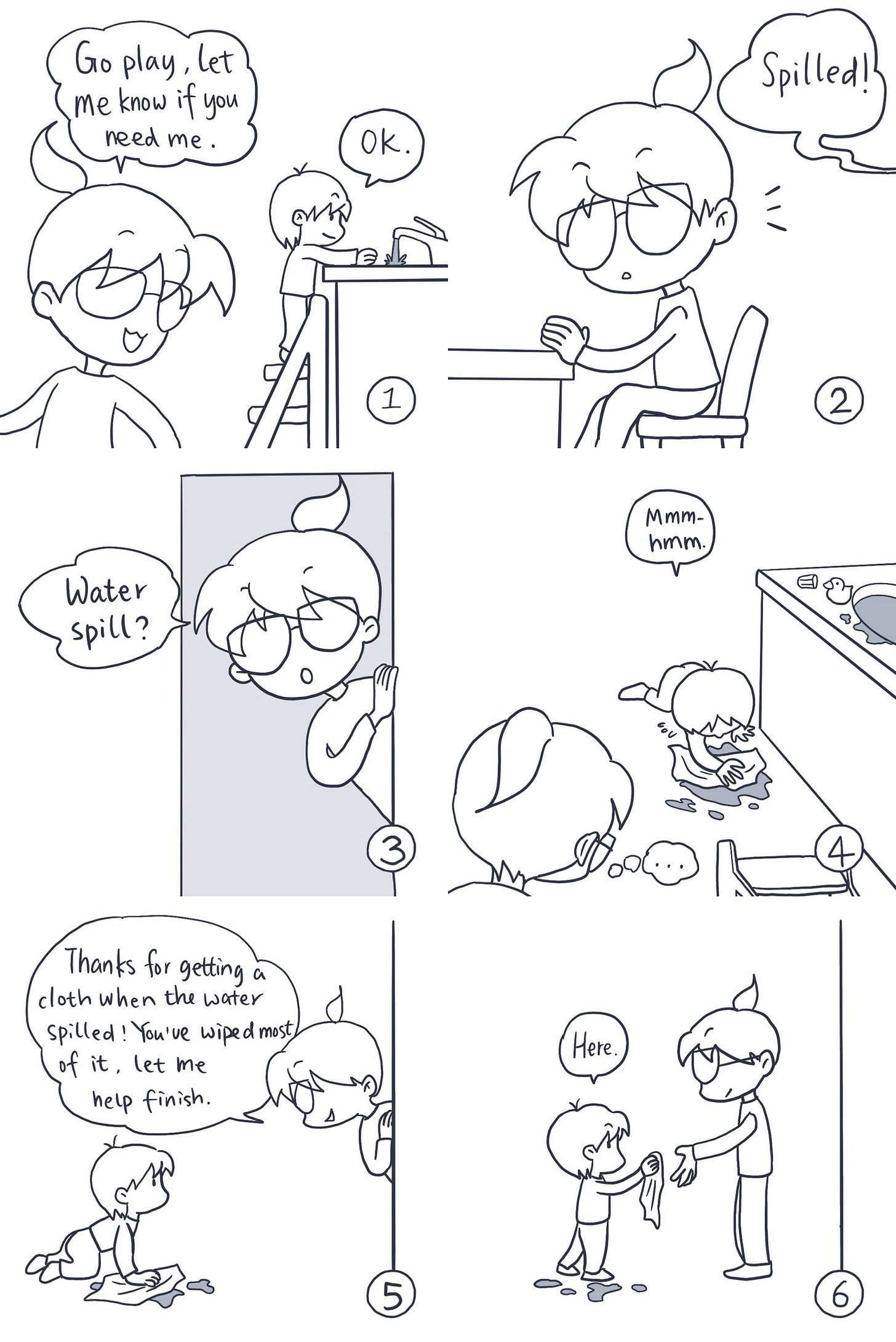Memolines~ After seeing a problem, focus on problem-solving rather than blaming
Nobody's perfect. When family members know their mistakes won't trigger criticism but instead understanding and help, our home feels safer and more peaceful.
When we’re with my toddler and something goes wrong, we face a choice: do we point out the mistake or just fix the problem? I've learned that focusing on solutions works much better than blame.
A little story about spilled water
The other day, my little one was playing in the bathroom by herself. Suddenly, I heard her call out: "Spilled!"
When I hurried over, I found her busily wiping the floor with our countertop cloth.
"Water spill?" I asked.
"Mm-hmm," she nodded, still wiping away.
"Thanks for getting a cloth when the water spilled! You've wiped most of it - let me help finish." She handed me the cloth.
When I told my husband later, we both felt so proud. She didn't just notice the problem - she jumped right in to solve it and knew when to get help.
Another time, she accidentally broke a glass soap bottle while playing. Instead of scolding her, I simply said, "Stay still. There's glass on the floor. Mommy will clean it up." No lecture - just problem-solving. Now I notice when she handles things, she sometimes whispers to herself, "Be careful, don't drop." That self-reminder works far better than any criticism from others ever could.
Accidents or intentional behavior?
I've learned to distinguish between accidents and intentional behavior. When my child accidentally spills or breaks something, criticism serves no purpose. We all have clumsy moments.
The best approach is focusing on fixing the situation, not dwelling on how it happened. Of course, intentional misbehavior calls for guidance, but that's different from an accident.
After we've solved a problem, a gentle "let's be careful next time" might help, but during the cleanup, keeping our focus on solutions teaches kids how to handle mishaps constructively.
Why skip the blame game?
It's tempting to say things like "How could you be so careless?" or "You've spilled water again!" But these comments don't help - they just release our frustration while making our kids feel worse.
If I criticized my daughter regularly, she'd probably start hiding her mistakes or become too afraid to tell me when things go wrong. That's the last thing I want.
I don't buy into "tough talk but soft heart" parenting. If your heart is truly soft, why not let your words match? Kids are figuring out how the world works, and our reactions shape their understanding in powerful ways.
When we focus on solving problems together, children learn that mistakes happen to everyone, solutions matter more than blame, and asking for help is always okay.
Creating a blame-free home
This approach works for everyone, not just kids. My husband sets an example and has helped shape how I parent. If one of us forgets to turn off the stove, the other simply turns it off and says, "The stove's off now," instead of "You forgot the stove again?"
Nobody's perfect. When family members know their mistakes won't trigger criticism but instead understanding and help, our home feels safer and more peaceful. We can all be honest about problems and work together on solutions.


